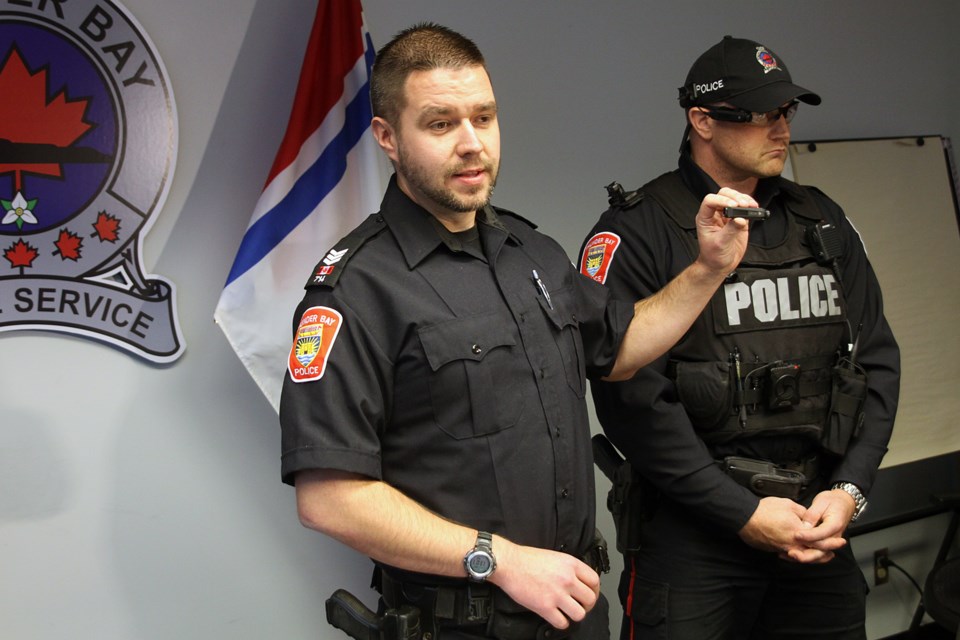THUNDER BAY - The prospect of being recorded is resulting in more positive interactions between the community and police, for both the public and the officers.
Insp. Dan Taddeo provided a brief update to the Thunder Bay Police Services Board on Tuesday regarding the recent pilot project to outfit officers with body worn cameras.
“It’s been positively reviewed in all aspects,” Taddeo said. “The gathering of evidence is incredible and the interactions with the public have all been very positive. It’s only been a week and two days, but it’s all been very good.”
The pilot project began on Nov. 13 and sees officers in the traffic unit wearing body cameras that record interactions with the public.
Thunder Bay Police advised the public that officers would be outfitted with cameras through the media, however, police will make separate notifications if they are in a private dwelling or any other place that carries an expectation of privacy.
Before the pilot project began, Thunder Bay Police consulted the Medicine Hat Police Service, which has a similar sized police force and was also running a body camera pilot. Taddeo said Medicine Hat reported an increase in the public trust of officers, as well as a change in the public’s behavior.
Taddeo said there does not seem to be concern amongst the public when encountering an officer with a body camera. The cameras themselves are very discreet, he added, but they also serve as a deterrent to inappropriate or aggressive behavior and can actually be calming.
“Officers conduct themselves as they normally would, so the interaction starts to flow naturally,” Taddeo added.
“When people realize they are being recorded there is a change. I am specifically referring to a person who may conduct themselves more negatively, maybe more aggressively in terms of tone, or voice, or even action.”
Aside from impacting how the public and officers interact, the body worn cameras also offer more objective evidence in cases that go before the courts.
“This evidence is the best evidence, it’s objective, it’s in the viewpoint of what is actually going on in the here and now and it isn’t one person says versus another person says,” Taddeo said.
The pilot project will run until the end of February, at which time the data will be analyzed and the benefits will be weighed against the costs. However, Taddeo said because the cameras and the recorded evidence may still be relevant in ongoing court cases, it will take time to finalize a report on the pilot.
“We have to assess how many guilty pleas versus trials, for the simple reason that trials cost money,” Taddeo continued. “It’s overtime for officers to attend. Now is there an increased guilty pleas based on the evidence we have been able to obtain by way of video.”
Thunder Bay Police chief, Sylvie Hauth, said the pilot project is a step in the right direction and she is hopeful the Police Service will continue to see benefits of the cameras.
“It gives us the opportunity at no costs, which is great to really analyze where we are at in terms of technology, what it will look like in terms of benefits to the service, and then look at next steps,” she said.
If the Police Service decides to continue with body worn cameras, Hauth said it will be something that needs to be instituted incrementally, rather than outfitting cameras to the 219 officers on the force all at once.
“I don’t’ think it is feasible to go before council for budgetary considerations and say this is what outfitting an whole department looks like,” Hauth said. “I think it’s better to do it incrementally.”
